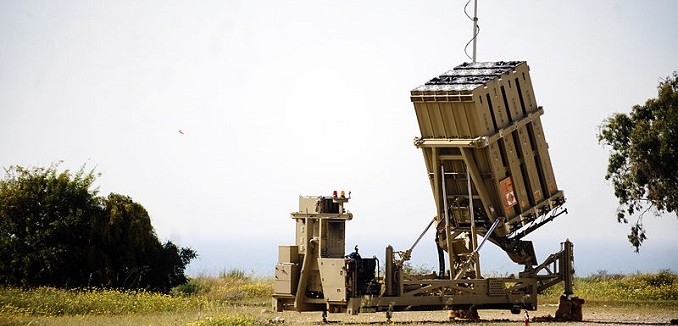South Korea is seriously considering purchasing the Israeli made Iron Dome systems, which intercepts and kills short range rockets and missiles.
The Tower has learned that advanced negotiations took place between the two countries during a private visit to Israel by Brigadier General Lee Hee Woo, President of a Chungnam National University research institute. General Lee told The Tower that “the Korean air Force is seriously considering purchasing the Israeli system in order to defend our capital Seoul from the North Korean threat.”
Seoul is situated roughly 45 kilometers from the Demilitarized Zone in between South Korea and North Korea.
Iron Dome, which was developed by Rafael Advance Defense Systems, is considered to be the first anti-missile system tested and proven in battle. The financing for its research came from the Israeli government but the production of its batteries is financed by the Pentagon, which has committed itself to allocating up to nearly $400 million through 2015 for the system.
The system was developed as a reaction to the war that Israel fought against Hezbollah in 2006. During that war Hezbollah fired more than 4,000 rockets and missiles at the Jewish state. The system consists of a radar, ground station, and intercepting missiles with electro-optic sensors, which are launched from the battery. Iron Dome batteries are capable of covering a range of up to 70 kilometers. The system proved its effectiveness during the last war in Gaza, when it protected the south of the country from 1,500 missiles and rockets fired by Hamas. It even managed to intercept four missiles fired at the outskirts of Tel Aviv. The IDF claims that its success rate was 85%, although the figure has been disputed by some independent experts.
“Our situation in Korea is similar to yours in Gaza,” added General Lee “and this is why we learn the lessons of your battles in Gaza and hope to adopt them”.
Israel, so far, has six batteries – each costing nearly $50 million – and each intercepting missile costs $100,000. Jerusalem plans to produce another seven to provide an effective defense to the rest of the country.
It was also revealed that Israel is negotiating the sale of the system to Singapore and India.
[Photo: Israel Defense Forces / Wiki Commons]




